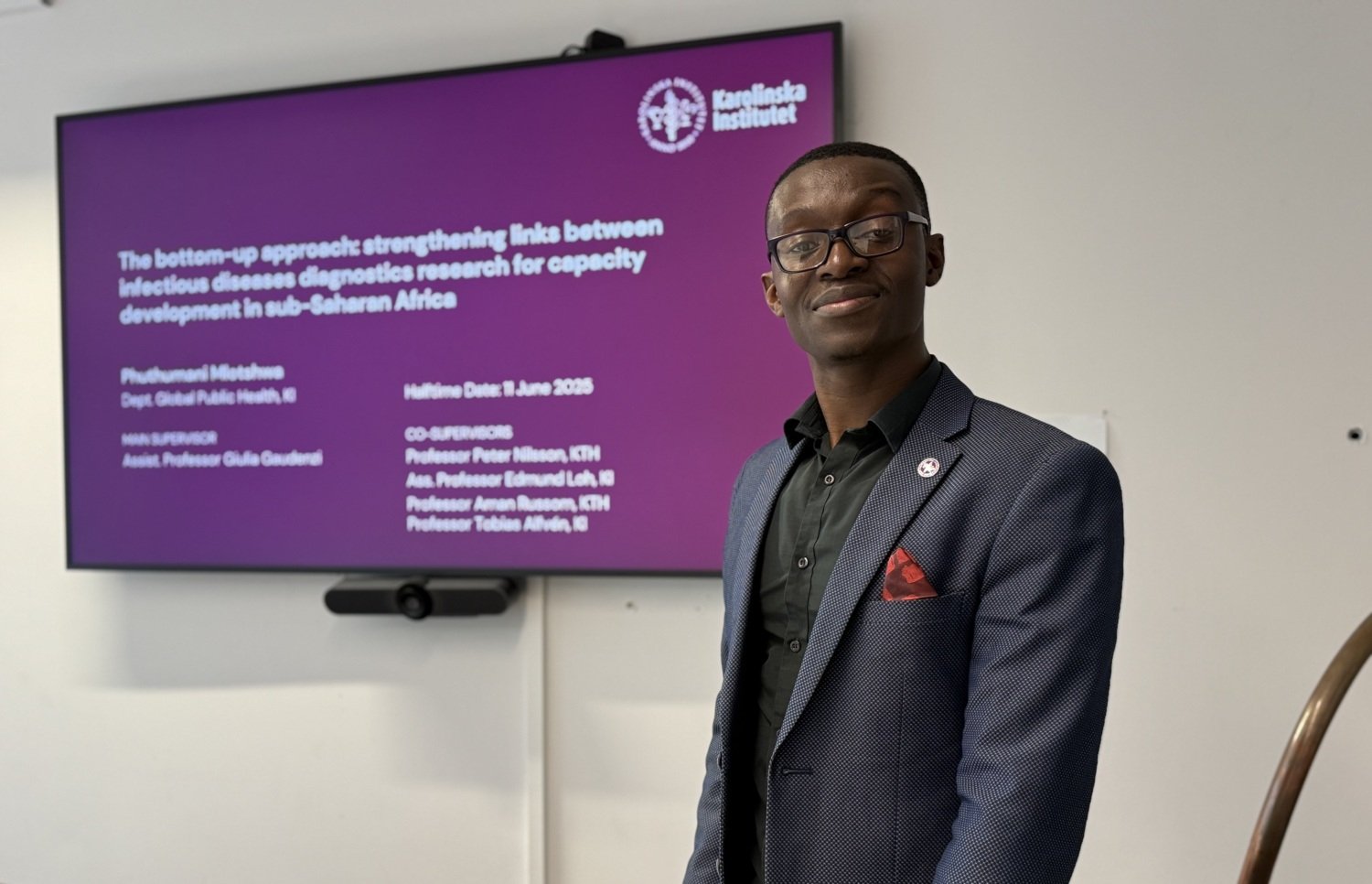Advancing diagnostics for infectious diseases in Sub-Saharan Africa

PhD student Phuthumani Mlotshwa is dedicated to enhancing diagnostics for infectious diseases in sub-Saharan Africa. Through collaboration with local communities and the analysis of clinical data and biosamples, his project aims to improve disease management and develop sustainable biobanking practices. On 11 June, he successfully passed his half-time review. Here he reflects on his PhD journey up until now: progress, achievements and future goals.
Congratulations on passing your half-time review! Could you briefly describe your PhD project?
Thank you. My PhD project focuses on improving diagnostics research and development for infectious diseases in sub-Saharan Africa. I analyse clinical end-user data and biosamples from a paediatric CNS infection trial to estimate disease burden and identify ways to enhance clinical management. Recognizing the importance of biobanking in diagnostics development, I also work with local communities in low-resource settings to co-develop sustainable, culturally appropriate approaches to biosample storage and use.
How do you feel about your progress so far?
I feel that I’ve made solid progress and have done my best with the circumstances and resources available. While I haven’t achieved everything I initially projected, I’m satisfied with the foundation I’ve built so far. I had hoped to have completed more of the core requirements by now to focus more on the elective components, but I’m confident that I’m on the right track.
Are there any highlights or achievements so far, that you are proud of?
One highlight I’m proud of was having two of our papers accepted for publication in 2024—those moments felt incredibly rewarding. At the same time, I’ve developed a healthy resilience to rejection, which I also consider a significant achievement. Both experiences have contributed to my growth as a researcher.
Have you faced any challenges or obstacles?
Yes, I’ve encountered a few challenges. We initially expected the proteomics analyses to be relatively straightforward, but like much of science, they’ve proven more complex. Our collaborators at SciLifeLab have had to dedicate considerable time to troubleshooting. Additionally, the HoliCare clinical trial, which underpins some of my sub-studies, has experienced delays in its initiation. These setbacks have required patience and adaptability, but they’ve also provided valuable learning opportunities.
What feedback did you receive during the review, and how do you plan to implement it?
During the seminar, we were advised to scale down certain components of two of my studies, particularly considering the time-intensive nature of the qualitative sub-study and the computational demands of the proteomic analyses. I’m working with my supervisors to alter the plans to ensure high-quality but feasible studies come out of the feedback.
What are your goals for the remainder of the period?
My goals for the remainder of the period are to deepen my hands-on experience in bioinformatic data analysis and to strengthen my practical skills in community engagement through qualitative research. These areas are essential for advancing both the analytical and participatory dimensions of my project.
Project title:
The bottom-up approach: strengthening links between infectious diseases diagnostics research for capacity development in sub-Saharan Africa
Main supervisor:
Assistant Professor Giulia Gaudenzi
Co-supervisors:
Professor Tobias Alfvén, GPH
Professor Aman Russom, KTH Royal Institute of Technology
Docent Edmund Loh, MTC
Professor Peter Nilsson, KTH Royal Institute of Technology
Half-time board:
Dr. Mtakai Ngara, MTC
Associate Professor Barbro Fröding, KTH Royal Institute of Technology
Docent Kristi Sidney Annerstedt, GPH
